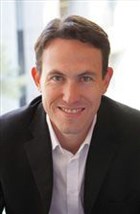TORONTO, CANADA: "How do we shift the way we think of the world...? We need to find opportunities in our daily lives to give back. It's the right thing to do, but it also has a good business case." So said Craig Kielburger, co-founder of Free The Children, speaking at a special general session hosted at the recent 2010 IABC World Conference in Toronto, Canada.
During this session, Kielburger shared his insights on sustainability and what corporates can do to facilitate more involvement with their staff. He noted that while many companies around the world already have sound sustainability reporting, many do not; and among those who do, staff are not always involved in the organisation's initiatives.
Free The Children is an international development and youth empowerment organisation that has built more than 500 schools in Asia, Africa and Latin America. The philosophy it developed over the years of working with the children is called 'Me to We'. The subject even made it as a New York Times bestselling book. He believes companies need to take that philosophy and adapt it to a corporate environment.
Driven by the staff
Kielburger explained how employee engagement within organisations has to be driven by the staff themselves. Internal communication may very well be the storytelling of communicating messages to staff, but employee engagement ensures staff form part of the organisation's activity.
To engage staff, four key elements need to be looked at within the context of organisational culture: empathy, community, meaning, legacy. These cultural nuances are the same as work done within non-profit organisations, and the fundamentals are the same, no matter where the communication takes place.
"Empathy goes to the heart and soul of our work... the skills of listening to what is being said around us," said Kielburger. It is only after engaging people, and listening to what they have to say, that are you able to get their buy-in and commitment to any activity. The culture of empathy is about having a culture of listening - to employees, colleagues, the communities we serve - and how best they can be served.
"As what your people care about, your customers care about, your employees think about," said Kielburger. "It's about showing you care, the company cares, the people cares."
Involving
This can be done through co-branding, showing responsible actions such as reducing carbon emissions, involving employees to show that they are part of what the company represents.
"It's about honouring and showing employees that the company cares about what staff care about," explained Kielburger.
A culture of community is about building a community both inside and outside a company. "It's one thing to say we care, but it's another to show we care," said Kielburger.
The greatest lessons in business can be learned on the ground - working in the communities, where people live their daily lives. He added, "The world as we know it is changing... companies, non-profits, people in our world need to change the way they approach community involvement. They need to work together for the collective good... come together to work for the collective good."
Collective good
Community work, Kielburger said, is about setting aside individual gain for the collective good and common goal. "Companies call in expensive consultants who do teamwork and then... nothing... everyone hugs each other for the day, but walk away with nothing. You need to motivate people and bring in a common trust for a common goal to get people together."
KPMG, for example, sets aside a week a year where nearly 3000 staff members go out and help over 130 communities. "This is how you can inspire employees with meaning... touch people's live and help give something real back... people are desperate for meaning, more than a pay check. So far we reward people with dollars, and all they really want is respect," said Kielburger.
"Fifty percent of Canadian workers are not satisfied in their jobs... community work can help inspire them, celebrate them and make them feel important and part of the bigger picture." Kielburger said it's about helping people to find meaning in a material work... constantly reminding people and sharing with employees the vision of the company and the reason they work.
According to Kielburger, we live in a for-profit work where the next dividend is what is important. More effort should be put into engaging employees to afford them the opportunity to create a legacy - for them and to be part of the legacy of their companies.
More information and video casts from the 2010 IABC World Conference are available at www.talk2us.co.za.
































